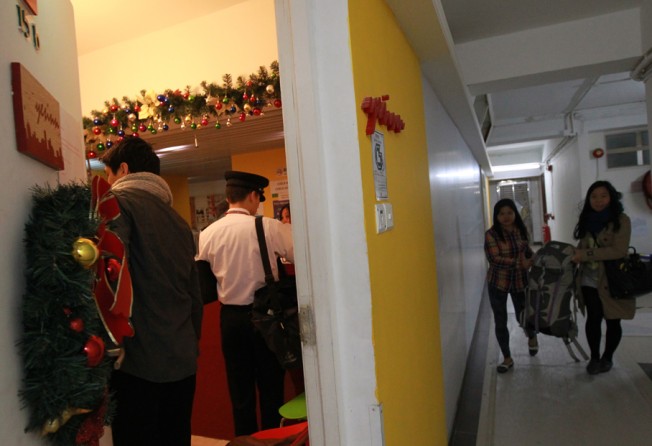Guest house neighbours deserve a say on whether they should operate

Booming tourism is good for Hong Kong's economy. The flood of visitors wanting a cheap place to stay is also an opportunity for property owners with an entrepreneurial spirit. Free market rules with minimal red tape mean that a flat can be converted into a guest house with relative ease. But the process may be just too easy, as a recent fire in a North Point residential building has highlighted.
At least 25 people were injured, four critically, when the blaze hit the third-floor guest house in Continental Mansion on the corner of King's Road and Cheung Hong Street. The fire, believed to have started outside the building, is being investigated. How it was caused and spread is obviously of interest to those affected, but also raises a host of concerns for those living in buildings where places of short-term accommodation are located. Among the issues are liability, safety, disruption of daily lives and a lessening of privacy.
As with subdivided flats, grey areas abound. Guest houses, like hotels, are subject to laws to ensure building, fire safety, health and sanitation standards are met. Less clear, though, is the power of the deed of mutual covenant, not overseen by the government, which sets out rules to regulate the rights and liabilities of the co-owners of a building and how it is managed. Hostels have been licensed by the Home Affairs Department to operate on the third, fifth, 10th and 15th floors of Continental Mansion even though the deed apparently indicates they are only permitted on the ground, first and second floors.
The granting of licenses without regard for the deed raises questions as to insurance and liability. Hostels invariably mean the presence of strangers, busier lobbies and lifts and the chance of nuisance or undesirable people. The views of owners should be taken into account when applications are made.
Rising numbers of tourists puts a strain on existing accommodation. Hotels take time to build and flats can quickly be converted into guest houses. But there are also those willing to avoid the rules; between January and November, there were 161 prosecutions for unlicensed hostels, up from 53 in 2011.
Hong Kong's reputation as a tourist destination is based on how we treat our visitors. Their safety has to go ahead of all else. But residents should also have a say in the industry and none is closer to home than where guest houses are located. Authorities would do well to balance creative thinking on affordable tourist accommodation with the rights of citizens.